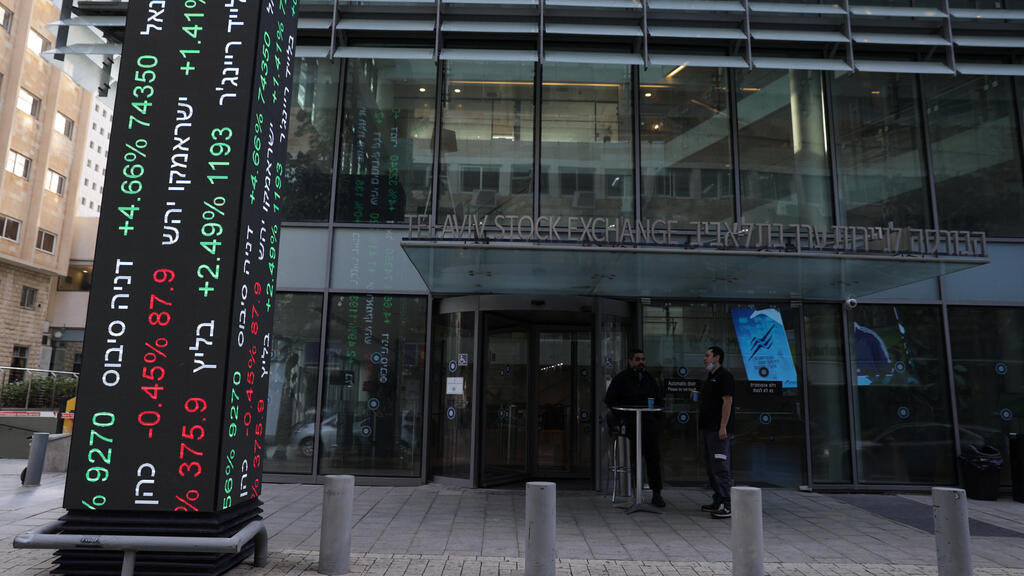Getting your Trinity Audio player ready...
The banks’ boom is expected to slow, and the sale of new apartments is projected to decelerate, but 2025 is shaping up to benefit other sectors, particularly defense, insurance and construction. This is according to a report by the research division of Leader Capital Markets, which reviewed 2024’s market performance and provided forecasts for the coming year.
Leader describes 2024 as a strong year for the Tel Aviv Stock Exchange, which outperformed many global markets despite significant challenges, including the escalation of war, two credit downgrades, a rising deficit, inflation, supply chain disruptions and the departure of foreign investors.
For 2025, Leader strikes an optimistic tone, driven by expectations of an imminent conclusion to the war, alongside speculation that the Trump administration will advance normalization agreements with Saudi Arabia.
Domestically, Leader anticipates a substantial return of foreign investors and sees little chance of a repeat of the internal conflicts that characterized 2023.
At the close of 2023, Leader warned of potential credit losses for banks stemming from the war. However, by the end of 2024, the sector had exceeded expectations, with credit loss provisions reaching just 0.15% of public loans, well below the 0.75%-1.25% initially forecast.
Get the Ynetnews app on your smartphone: Google Play: https://bit.ly/4eJ37pE | Apple App Store: https://bit.ly/3ZL7iNv
This resilience was mirrored in bank stocks, as the Tel Aviv Banks 5 Index surged 39%, outperforming the broader TA-35 Index’s 25% gain. Additionally, credit growth returned, with most banks experiencing over 10% growth by year-end.
Looking ahead, Leader expects higher credit loss provisions in 2025 due to the combination of elevated interest rates and rapid credit expansion. The economic impact of post-war policies is likely to weigh on loan portfolios.
Furthermore, inflation and interest rates, while still relevant, are expected to exert a more moderate influence on banks’ earnings. Leader also foresees continued pressure on banks to contribute to war-related costs, potentially through extended taxation measures introduced in 2024.
Insurance sector: resilience and opportunity
In contrast to the banking sector, the insurance industry faces relatively low risks, according to Leader. For 2025, improved underwriting quality and profitability are anticipated, supported by falling inflation and the adoption of the IFRS 17 standard. These factors, coupled with the absence of significant regulatory threats, create a favorable environment for insurers.
Leader highlights that a high-interest-rate environment benefits insurance companies by allowing them to invest in low-risk, high-yield assets while requiring less capital allocation. Although interest rates are expected to remain relatively high, they are likely to begin a gradual decline.
War-related impacts on the insurance sector have been limited thus far, and low unemployment levels in the economy have contributed to stable activity. This stability reduces the likelihood of significant withdrawals from savings policies or pension plans.
Defense sector: sustained momentum
The defense sector, which experienced strong growth in 2024 due to increased security budgets, heightened defense procurement and global conflicts, is poised to maintain its momentum into 2025. Leader notes that Israel’s advanced technological capabilities, demonstrated during the war, continue to serve as a key growth engine for the country’s defense companies, particularly the largest players.
 Sabina Podval Levy, head of research at Leader Photo: Aya Ben Ezri
Sabina Podval Levy, head of research at Leader Photo: Aya Ben EzriHowever, Leader warns that the potential conclusion of the war in Israel or Ukraine could slow this momentum in the short term. Despite this, long-term investments in rearmament and the modernization of military capabilities are expected to drive sustained growth.
Construction and infrastructure: optimism amid challenges
Leader’s analysis points to a cautiously optimistic outlook for the construction and infrastructure sectors in 2025. The anticipated end of the war and a reduction in interest rates are expected to alleviate financing pressures, while ongoing housing shortages and growing infrastructure needs should accelerate project volumes.
Leader predicts that significant infrastructure tenders will be renewed in 2025, alongside progress in financial closures for existing tenders. These developments are likely to support the growth of major companies in the sector over the coming years.



